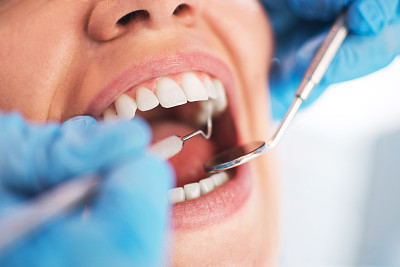Summary: Periodontal disease is a significant public health concern that not only impacts oral health but also contributes to various systemic health conditions. This article delves into the effects of periodontal disease on overall health, highlighting its links to cardiovascular diseases, diabetes, respiratory issues, and pregnancy complications. Moreover, it explores effective prevention strategies that can enhance oral hygiene and mitigate the risk of developing periodontal disease. By raising awareness about this condition and promoting proper oral care, we can improve health outcomes and foster a better quality of life. Understanding these connections and implementing effective preventive measures is crucial for everyone.
1. How Periodontal Disease Affects Overall Health

Periodontal disease, characterized by inflammation and infection of the gums and supporting structures of the teeth, has far-reaching effects beyond oral health. Research indicates that the bacteria responsible for periodontal disease can enter the bloodstream, potentially leading to cardiovascular complications. These complications may manifest as an increased risk of heart attacks and strokes, highlighting the critical need for oral health vigilance.
Additionally, individuals with diabetes face a unique challenge; periodontal disease can worsen glycemic control, making it difficult to manage blood sugar levels. This relationship creates a vicious cycle, as higher blood sugar levels can also exacerbate periodontal issues. Hence, effective management of one condition is essential for controlling the other.
The implications of periodontal disease extend to respiratory health as well. Bacterial infections from the mouth can be aspirated into the lungs, potentially causing respiratory conditions such as pneumonia. This is especially concerning for individuals with pre-existing lung diseases, underlining the importance of maintaining optimal oral hygiene.
2. Link Between Periodontal Disease and Cardiovascular Health
The interplay between periodontal disease and cardiovascular health is a particularly alarming aspect of this condition. Studies show that the inflammation caused by periodontal disease can contribute to inflammatory processes in the cardiovascular system. This, in turn, can lead to atherosclerosis, a condition where plaque builds up in the arteries, increasing the risk of heart disease.
Moreover, the systemic inflammation resulting from the bodys immune response to periodontal bacteria can further exacerbate heart-related issues. Healthcare professionals increasingly emphasize early detection and treatment of periodontal disease as part of comprehensive cardiovascular health strategies.
Preventive measures such as regular dental check-ups, professional cleanings, and education about maintaining good oral hygiene can significantly reduce the risk of periodontal disease, contributing positively to cardiovascular health. By taking proactive steps, individuals can help protect both their oral and heart health.
3. Importance of Good Oral Hygiene Practices
The cornerstone of preventing periodontal disease is adopting effective oral hygiene practices. Daily brushing and flossing are essential to remove plaque buildup that can lead to gum disease. It is recommended to brush at least twice a day and floss daily to ensure that all food particles and bacteria are removed from the mouth.
In addition to routine brushing and flossing, using mouthwash can provide an extra layer of protection against bacteria. Antimicrobial mouthwashes can help reduce plaque and inflammation in the gums, addressing early signs of periodontal disease. Choosing toothpaste with fluoride also enhances dental health by preventing cavities and strengthening enamel.
Regular visits to the dentist are crucial in maintaining oral health. Dental professionals can detect early signs of periodontal disease and provide necessary treatments. Cleanings performed by dental hygienists can remove tartar buildup that regular brushing cannot tackle, thereby reducing the risk of gum inflammation and similar diseases.
4. Lifestyle Factors in Preventing Periodontal Disease
Beyond personal oral hygiene, lifestyle choices significantly impact the likelihood of developing periodontal disease. A balanced diet rich in nutrients plays a crucial role in maintaining healthy gums. Foods that are high in vitamins C and D, for instance, are particularly beneficial, as they support gum health and immune function.
Avoiding tobacco products is another key factor in preventing periodontal disease. Smoking and other forms of tobacco use are strongly linked to gum disease and can hinder wound healing. Quitting smoking not only improves oral health but also enhances overall well-being.
Lastly, managing stress through adequate sleep, exercise, and relaxation techniques can contribute to better oral health. Chronic stress can weaken the immune system, making individuals more susceptible to infections, including those that lead to periodontal disease.
Summary: Periodontal disease embodies not just a local oral health concern but a significant systemic health risk. Through understanding its impact on overall health and implementing effective prevention strategies, we can mitigate potential complications associated with this condition. Proactive measures, maintaining good oral hygiene, and adopting a healthy lifestyle can yield remarkable benefits for oral health and overall well-being.
This article is compiled by Vickong Dental and the content is for reference only
Vickong Dental
Vickong Dental is a large medical group established in Hong Kong in 2008 by professors from well-known medical universities in Guangdong and Hong Kong, as well as medical doctors from key national '985' universities (including Master's supervisors and senior professors). The chain of branches brings together expert dentists with PhDs and Master's degrees from Hong Kong and Mainland China, committed to providing high-quality dental treatment.
"Vickong Dental Practices the University Motto of 'Healing and Serving Society,' with a Stable Operation for Sixteen Years. It Has Been honored with Hong Kong Enterprise Leaders's Choice,' and is a Global Trusted Implant Center for the Nobel Implant System. Recommended by Hong Kong Metro Broadcast and Guangdong Television, it Serves Customers from Over Thirty Countries and Regions, Gaining the Trust and Favor of Citizens from the Guangdong-Hong Kong-Macau Greater Bay Area and Surrounding Cities.

Thousands of customers' unanimous praise
The most recognized and highly recommended dental service by customers in the Guangdong-Hong Kong-Macau Greater Bay Area
We Ensure You Receive Detailed Care and Attention Here
Hong Kong standards, Shenzhen prices, Your Trusted English-speaking dentists

Vickong Dental Medical-Grade Instrument Disinfection Process
Vickong Dental Medical-Grade Instrument Disinfection Process

Vickong Dental Chain: A Warm and Comfortable Environment for Treatment






Appointment Hours

Q&A
Why choose Vickong Dental?
Vickong Dental practices the university motto 「Medicine to Benefit Society」, with each branch bringing together highly qualified dentists with doctoral and master’s degrees from Hong Kong and the Mainland, and has maintained seventeen years of steady operation。Recipient of 「2024 Hong Kong Enterprise Leaders Brand」, 「2025 Hong Kong Enterprise Leaders Brand」, a Nobel Biocare Global Trusted Implant Center, and a brand recommended by Metro Radio Hong Kong and Guangdong TV。
To date, we have served customers from more than thirty countries and regions,earning exceptionally high word-of-mouth recognition and trusted recommendations from residents across the Guangdong-Hong Kong-Macao Greater Bay Area and surrounding cities
We have eight major branches in Zhuhai、Shenzhen,and a consultation and service assurance center in Hong Kong,so you can book a free consultation at any time for any questions,which is very reassuring.
If I do not accept the quotation after the CT scan, will I be charged??
No! As long as the actual treatment has not started, you will not be charged any fees.
Will there be any additional charges during the treatment process?
No, there won’t be any additional charges. Before treatment begins, we will clearly explain the treatment plan and its corresponding fees. Only after the patient agrees and signs the consent form will we proceed with the dental service.
Can I pay in Hong Kong dollars?
Yes. Vickong Dental accepts payment in Hong Kong dollars. The amount will be converted based on the exchange rate of the day, and the applicable rate will be clearly communicated to you in advance.
Can I reschedule my appointment at any time?
Yes. Please contact us via **WeChat** or **WhatsApp** as early as possible, providing your original appointment time and details, along with your preferred new date and time slot for rescheduling.













